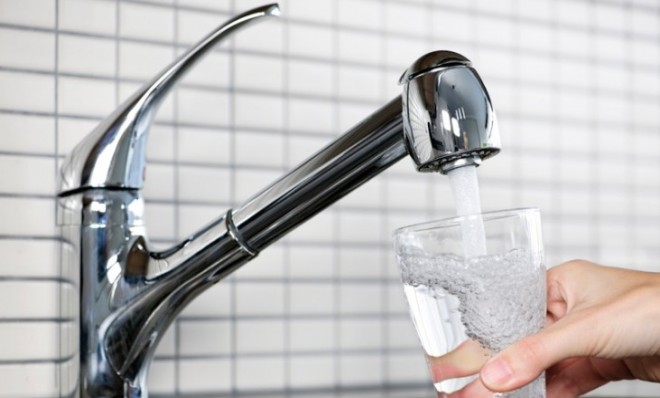Does tap water cause food allergies?
A new study examines whether the chlorine we're drinking is killing off a good bacteria that keeps allergens at bay

A free daily email with the biggest news stories of the day – and the best features from TheWeek.com
You are now subscribed
Your newsletter sign-up was successful
The question: Can't stomach peanut butter? You aren't alone. Food allergies are on the rise in the United States, and scientists aren't really sure why. The Centers for Disease Control and Prevention estimate that 3 million people under 18 have some sort of food-related ailment, whether it be from eggs, fish, milk, peanuts, shellfish, soy, treat nuts, or wheat, which altogether account for 90 percent of food allergies. Researchers at the American College of Allergy, Asthma, and Immunology had a hunch that dichlorophenols — a chlorine byproduct used to treat tap water for bugs that's also used in pesticides — are killing the naturally occurring bacteria in our digestive systems that normally keep allergies away.
How it was tested: Elina Jerschow, an assistant professor of allergy and immunology at the Albert Einstein College of Medicine in New York, analyzed data from 2,211 people participating in the U.S. National Health and Nutrition Examination Survey. Specifically, Jerschow and her colleagues looked at dichlorophenol levels in their urine and whether it correlated with a higher likelihood of food allergy.
The outcome: People with higher levels of dichlorophenols were 80 percent more likely to have a food allergy than people with low levels. Researchers point out that that these findings are purely statistical, meaning that while there is some sort of association, it's unclear whether the chemicals cause food allergies or if the food allergies cause higher chemical levels.
The Week
Escape your echo chamber. Get the facts behind the news, plus analysis from multiple perspectives.

Sign up for The Week's Free Newsletters
From our morning news briefing to a weekly Good News Newsletter, get the best of The Week delivered directly to your inbox.
From our morning news briefing to a weekly Good News Newsletter, get the best of The Week delivered directly to your inbox.
What experts say: The research "certainly raises the possibility [of a tap water link] and justifies the kinds of studies that can help sort [out] if these pesticides are, indeed, the cause," said Dr. Kenneth Spaeth, of North Shore University Hospital in Long Island, N.Y., who was not involved in the study. Researchers were also surprised that dichlorophenol levels in urine didn't vary between urban and rural areas, notes Jershow. The study's administrators concluded that even people who didn't regularly drink from the tap could encounter the chemicals from eating fruit, drinking juices, or even eating foods like chocolate.
The lesson: While this study is preliminary, the evidence clearly demonstrates a link of some sort between an environmentally introduced chemical and our increased vulnerability to allergens. Avoiding tap water altogether won't solve the problem, and some researchers have noted that dichlorophenols — which are harmless at low levels — are present, at least in the United Kingdom, in a host of other products, including toothpaste, face washes, and lipsticks.
A free daily email with the biggest news stories of the day – and the best features from TheWeek.com
-
 Political cartoons for February 16
Political cartoons for February 16Cartoons Monday’s political cartoons include President's Day, a valentine from the Epstein files, and more
-
 Regent Hong Kong: a tranquil haven with a prime waterfront spot
Regent Hong Kong: a tranquil haven with a prime waterfront spotThe Week Recommends The trendy hotel recently underwent an extensive two-year revamp
-
 The problem with diagnosing profound autism
The problem with diagnosing profound autismThe Explainer Experts are reconsidering the idea of autism as a spectrum, which could impact diagnoses and policy making for the condition